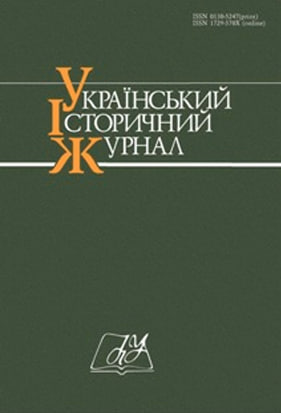Ukraine’s Cooperation with UNESCO: From the Proclamation of State Independence to Resilience in the Conditions of Russia’s War against Ukraine
(To the 70th Anniversary of Ukraine’s Membership in UNESCO)
DOI:
https://doi.org/10.15407/uhj2024.03.133Keywords:
UNESCO, cultural values of Ukraine, Russia’s war against UkraineAbstract
The purpose is to highlight the trends and forms of cooperation between Ukraine and UNESCO after the proclamation of state independence and in the conditions of the war unleashed by Russia.
The methodology is based on the principles of science, historicism, and consistency. The methods of critical assessment of sources are used to ensure the comprehensiveness and reliability of the facts revealed in the source documents.
The scientific novelty lies in highlighting the reason for Ukraine’s membership in UNESCO and setting forth the features of Ukraine — UNESCO cooperation after the proclamation of Ukraine’s state independence, including the cooperation as of Russia’s military invasion of Ukraine.
Conclusions. As a member of the UN, the Ukrainian SSR acquired its membership in UNESCO but could practically use it only during the “Khrushchev thaw” in May 1954 in two stages: as a union republic and an independent state. The priorities of Ukraine’s cooperation with UNESCO are determined by the mission of the organization, focused on promoting peace and activities in the fields of education, science, and culture, achieving respect for justice, legality in international humanitarian cooperation, and observation of human rights and fundamental freedoms. The areas of cooperation were determined by plans and programs in the fields of education, preservation of cultural heritage — tangible and intangible, information, sports, energy, and oceanography. In 1996, the coordination of cooperation was entrusted to the National Commission of Ukraine for UNESCO. After Russia’s large-scale invasion of Ukraine, UNESCO condemned the hostilities and stepped up to support the Ukrainian people in protecting its cultural heritage, preserving quality education, and ensuring the safety of journalists.


